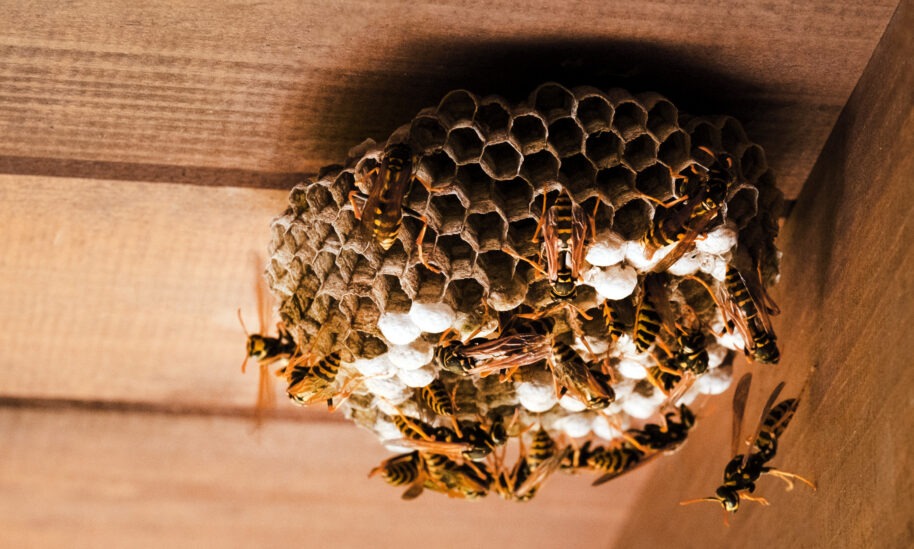Hoffman’s Exterminating cautions homeowners to leave stinging insect nests alone.
As the official start of the summer season is well on its way the National Pest Management Association (NPMA) and Hoffman’s Exterminating aim to help protect the public from harmful stinging insects like wasps, yellowjackets and hornets that could be buzzing and nesting nearby.
“While summer is an especially ideal time for fun, relaxing activities in the yard, it is also the season during which stinging insects thrive,” said William T. Hoffman, President & CEO of Hoffman’s Exterminating. “These insects can be very dangerous and should always be handled by a licensed pest control professional, especially when it comes to nest removal when hornets and wasps may attack.”
According to the NPMA, stinging insects send more than 500,000 people to the emergency room annually. Hoffman’s Exterminating is committed to help reduce this number by educating homeowners on how to protect themselves with these tips from the NPMA:
Seal cracks and crevices: Seal all visible cracks and crevices to keep these pests from moving indoors, and regularly inspect around the yard and along the perimeter of the house for nests.
Keep food covered: During a picnic or cookout, cover all food when outside and be sure to keep tight fitting lids on trash bins.
Avoid excessive use of fragrances- If spending long periods of time outdoors, avoid excessive use of perfume or cologne, as yellowjackets and other stinging insects are attracted to sweet-smelling fragrances. When possible, choose unscented shampoos, soaps, lotions and sunscreen is also ideal.
Adjust wardrobe: Avoid wearing dark colors and floral prints, since these patterns can attract stinging insects. Wear closed-toe shoes, especially in grassy areas where hornets and other pests often nest.
Remain calm, cool and collected: Do not swat a nearby pest or flail in panic—these movements may actually provoke an attack. Instead, remain calm and slowly walk away from the area. The insect should fly away without causing any harm.
For more information on stinging insects, please visit the Hoffman’s website.



